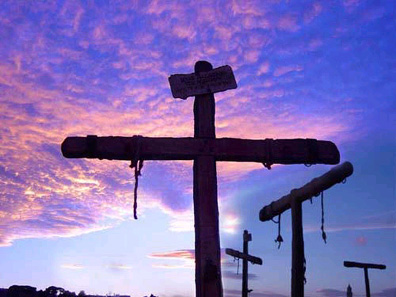WHAT’S MISSING IN OUR CHURCH?
The families in their Sunday best are gathered here today; To offer praise to God above and bow their heads to pray. In honor of the Holy One to feel the touch of Jesus Christ And know Him as we do. Little girls with pretty bows dressed up in frills and lace; Tiny lads in suits and ties are filled with His sweet grace. The sounds of music fill the room, the choir does softly sing; “Jesus loves me, this I know” oh hear those church bells ring. The sacred sons of Sunday morn come drifting through the air; Voices echo in the breeze, a day, so even fair. A touch of Sunday can be found to make a poor soul glad; The preacher, as he brings the word to every mom and dad. So as you’re driving by a ch _ _ ch not feeling up to par You wonder what is missing here, two simple words, UR.
 |
THIS IS THE DAY! |
 |
Every day that we are given is a precious gift from Almighty God. We should wake up every morning with a grateful attitude, full of faith and expectancy for what the Lord has in store. Sure, you may be facing some challenges in your every day life, or maybe things aren’t going the way you planned, but remember, each new day is a chance to stand strong in the midst of adversity and see the faithfulness of God. Every new day is an opportunity to praise and thank Him; to magnify your God instead of magnifying your problems. This is the day that the Lord has made, let us rejoice and be glad in it
Be glad that god has promised to never leave us or forsake us. Be glad that God has given you a sound, healthy mind. Rejoice that He is making a way where there seems to be no way
As you focus on the gift of every day and rejoice in what God has done in your life, you will begin to experience His increase and blessing. You’ll rise up higher and set the course to live in victory all the days of your life
“In the future days which we seek to make secure,
we look forward to a world
founded upon four essential human freedoms.
- THE FIRST IS freedom of speech and expressions - everywhere in the world.
- THE SECOND IS freedom of every person to worship God in his own way – everywhere in the world.
- THE THIRD IS freedom from want . . . - everywhere in the world.
- THE FOURTH IS freedom from fear . . . anywhere in the world.
INDEPENDENCE DAY – WHAT A PRICE FOR FREEDOM
Have you ever wondered what happened to those brave men who signed the
documents we call the Declaration of Independence? Five signers were
captured by the British as traitors and tortured before they were executed.
Twelve had their homes ransacked and burned. Two lost their sons in the
Revolutionary War; another had two sons captured. Nine of the 56 fought
and died from wounds or the hardships of the Revolution.
What kind of men were they? Twenty-four were lawyers, 11 were merchants,
9 were farmers or plantation owners. Most were men of means and well-educated.
Yet they signed this document knowing full well that the penalty would be death
or worse if captured. They pledged: “For the support of this declaration, with a
firm reliance on the protection of the Divine Providence, we mutually pledge to
each other our lives, our fortunes, and our sacred honor.”
Carter Baxton of Virginia, a wealthy trader, saw his ships swept from the seas
by the British navy. He sold his home and properties to pay his debts and died
in rags. Thomas McKeam was so hounded by the British that he was forced
to move his family constantly. He served in the Congress without pay, and
his family was kept in hiding. Eventually, his possessions were taken from
him and poverty overtook him. Vandals or soldiers or both looted the pro-
perties of Ellery, Clymer, Hall, Walton, Gwinnett, Heyward, Ruttledge, and
Middleton.
At the Battle of Yorktown, Thomas Nelson Jr, noted that Brittish General
Cornwallis had taken over the Nelson home for his headquarters. The owner
quietly urged General George Washing to open fire, which was done. The
home was destroyed and Nelson died bankrupt. Francis Lew had his home
and properties destroyed. The enemy jailed his wife and she died in a few short
months. John Hart was driven from his wife’s bedside as she was dying; their
children fled for their lives. Hart’s fields and mill were laid waste. He died
from exhaustion and a broken heart. Norris and Livingston suffered the same
fates.
And such are the stories of the American Revolution. These were not wild-
eyed, rabble-rousing ruffians; these were men of means. They had security
but they valued liberty more. They may have lost their lives and fortunes, but
their sacred honor is preserved today in the hearts and minds of all freedom
loving people throughout the world.
Love - If you have it, you don’t need anything else.
If you don’t have it, it doesn’t matter what else you have.
| July 08 Cover Page | | | July 08 Bulletin Page 1 | | | July 08 Bulletin Page 2 | | | July 2008 Bulletin Page 3 | | | July 2008 Bulletin Page 4 | | | July 08 Bulletin Page 5 |